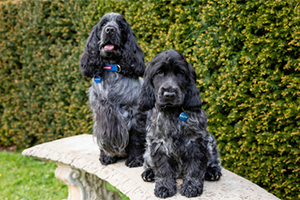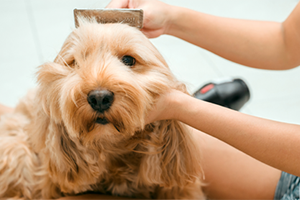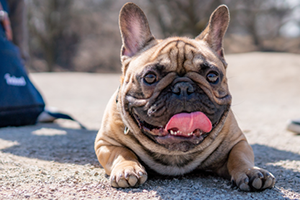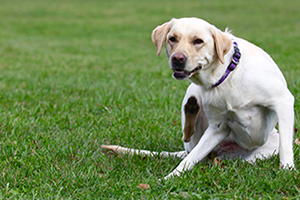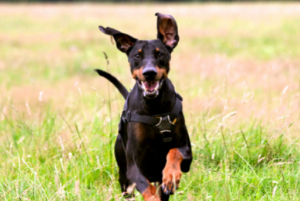
Cavalier King Charles Spaniel

A gentle, affectionate toy breed that’s a great companion for the whole family
Vital stats
Swipe to view more
| Size: | Small |
| Coat: | Double-coated & silky, low maintenance |
| Exercise | 1+ hours daily |
| Life span: | 10+ years |
| Breed group: | Toy |
| Temperament: | Adaptable, friendly, playful |
Cavalier King Charles Spaniel temperament & personality

Born companions, Cavalier King Charles Spaniels are easy going, lovable and playful dogs that do especially well with children and other canine friends.
- Ideal for first-time owners, Cavalier King Charles Spaniels are versatile and adaptable; they’re just as happy enjoying cuddles as they are playing games or going for walks.
- Highly intelligent and easy to train, Cavaliers are motivated by love and affection.
- Cavalier King Charles Spaniels and cats can be friends and live together harmoniously, provided they are socialised properly and as early as possible.
- Cavalier King Charles Spaniels and other dogs can get along too. Take integration slowly and they will soon be great companions for one another.
- Timid at first, socialising Cavalier King Charles Spaniel puppies is essential to develop their confidence and personality.
Cavalier King Charles Spaniel training & exercise

Training tips
- Descended from traditional working Spaniels, their hunting and chasing instincts can be strong, so focus on recall training before allowing them off their lead.
- Cavalier King Charles Spaniel training is usually simple and straightforward, as most can learn commands and tricks quickly and easily.
Keeping them happy
- Prone to separation anxiety, King Charles Spaniels exhibit unwanted behaviours such as barking, whining, scratching and chewing if they are left alone, so they need lots of human interaction.
Exercise
- Adult Cavalier King Charles Spaniels need at least an hour of physical exercise each day. As a Spaniel breed they may not suit a completely sedentary lifestyle.
- Their natural curiosity means that an adequately fenced and secure garden is essential for Cavalier King Charles Spaniels.
Game ideas
- Cavaliers are very intelligent and need lots of mental stimulation. Consider agility courses to stretch their brains and bodies!
- Whilst they might not have the same energy levels and prey drive as other Spaniels, Cavaliers still love ball games or playing fetch with a frisbee.
Common Cavalier King Charles Spaniel health conditions

Cavalier King Charles Spaniel grooming

Despite a thick double, medium-length coat, a Cavalier King Charles Spaniel grooming routine is fairly low maintenance and shedding is not a common problem.
- Cavaliers come in four colours: tricolour; black and tan; ruby; and, the most common, chestnut and white — also known as ‘Blenheim’.
- Their silky and sometimes wavy coats should be brushed or combed 3 or 4 times each week. Most Cavaliers tolerate grooming well.
- Cavaliers should only be bathed once a month or when they are visibly dirty or smelly to avoid irritating their skin and stripping the coat of its natural oils.
- Use grooming your Cavalier King Charles Spaniel as an opportunity to check them for signs of parasites or for unusual lumps or skin rashes.
- Brush your Cavalier King Charles Spaniel’s teeth at least 3 times a week to prevent tartar, gum disease and bad breath.
Cavalier King Charles Spaniel nutrition

Choosing the best food for Cavalier King Charles Spaniels is essential for them to grow into healthy, happy adult dogs.
- Cavalier King Charles Spaniel puppies use a lot of energy and need a high-quality diet featuring a good percentage of protein.
- Prone to becoming fat, Cavalier King Charles Spaniels need to have a closely monitored diet. Control portion sizes and discard whatever they haven’t eaten after 30 minutes.
- King Charles Spaniel puppies should have 3 meals a day whilst adults need just 2 meals a day. When switching from puppy to adult food, introduce new foods gradually while decreasing their old feed to avoid tummy trouble.
What to know before you buy or rehome a Cavalier King Charles Spaniel

Before you start looking for Cavalier King Charles Spaniel puppies for sale or to rehome, here’s a few important things about what you should know and that will help ensure that your dog is happy and healthy.
- Cavalier King Charles Spaniels make great dogs for novice owners and families with children and other pets, who are at home most of the time.
- You will need a secure yard and a strong leash to prevent your Cavalier from following their nose!
- Cavalier King Charles Spaniels can suffer from a range of health conditions, so it is essential to get comprehensive pet insurance for your dog. A reputable breeder will be able to show you proof that your Cavalier puppy has been tested and cleared of specific conditions.
- Remember ‘Lucy’s Law’. From 6th April 2020, anyone who wants a new puppy or kitten in England must buy direct from the breeder or adopt from a rescue centre. ‘Lucy’s Law’ was actually named after a Cavalier King Charles Spaniel called Lucy who was rescued from a puppy farm. All dog breeders are required to show puppies interacting with their mother.
- Choosing the right pet insurance plan for your Cavalier King Charles Spaniel will get you the best possible care should they need it and provide you with peace of mind that the cost of their treatment will be covered.
Cavalier King Charles Spaniel frequently asked questions
Discover some of the most popular dog breeds
Cavalier King Charles Spaniel insurance considerations
We always offer these things as standard:
Physiotherapy & pet therapies
Along with physiotherapy, which is covered within the Vet Bills benefit, we also cover Pet Therapies like herbal medicine, homeopathy and acupuncture. You can also claim for hydrotherapy, up to £500 per illness/injury in dogs and cats (no additional limit for rabbits).
Petplan is a trading name of Pet Plan Limited (Registered in England No. 1282939) and Allianz Insurance plc (Registered in England No. 84638), Registered office: 57 Ladymead, Guildford, Surrey GU1 1DB.
Pet Plan Limited is authorised and regulated by the Financial Conduct Authority. Financial Services Register No. 311969. Allianz Insurance plc is authorised by the Prudential Regulation Authority and regulated by the Financial Conduct Authority and the Prudential Regulation Authority. Financial Services Register No. 121849. Pet Plan Limited is a subsidiary of Allianz Insurance plc.





































